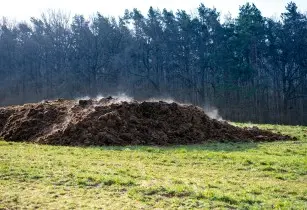With sharp reductions in methane emissions key to keeping global warming below 1.5°C, the International Fund for Agricultural Development (IFAD) is launching a new initiative to help developing countries lower methane emissions from agricultural and small-scale farming
The new programme, which was announced on 8 May at the AIM Climate Summit, will receive US$3mn in support from the Global Methane Hub and US$1mn in support from the US State Department. The IFAD initiative will support the preparation of a guidebook to help countries integrate methane emission reductions in their Nationally Determined Contribution (NDC) and mainstream methane reduction in their national planning, budgeting, and public investments procedures. It will also advance a pipeline of bankable interventions that pioneer methane reduction in the agricultural sector and food systems.
IFAD will begin by providing technical assistance to 15 countries to support integrating methane reductions in their updated NDC for submissions to the United Nations Framework Convention on Climate Change in 2025. The fund will also assist these countries to design projects and blended finance solutions, to reduce methane emissions in agriculture and food systems.
The initiative will further help highlight the multiple advantages of a variety of solutions to reduce methane emissions. For example, approaches that introduce better feed, also promote animal health and husbandry. Specific techniques to use less water to grow rice, or using improved rice varieties that reduce the time between planting and harvesting, can also lead to increased rice production.
“This funding will provide smallholder farmers with the right policy and financial support to reduce their methane emissions while also increasing their food production and incomes. We are thrilled to be working with IFAD to make this programme a reality and help achieve the goals of the Global Methane Pledge,” said Rick Duke, the US deputy special envoy for climate.





